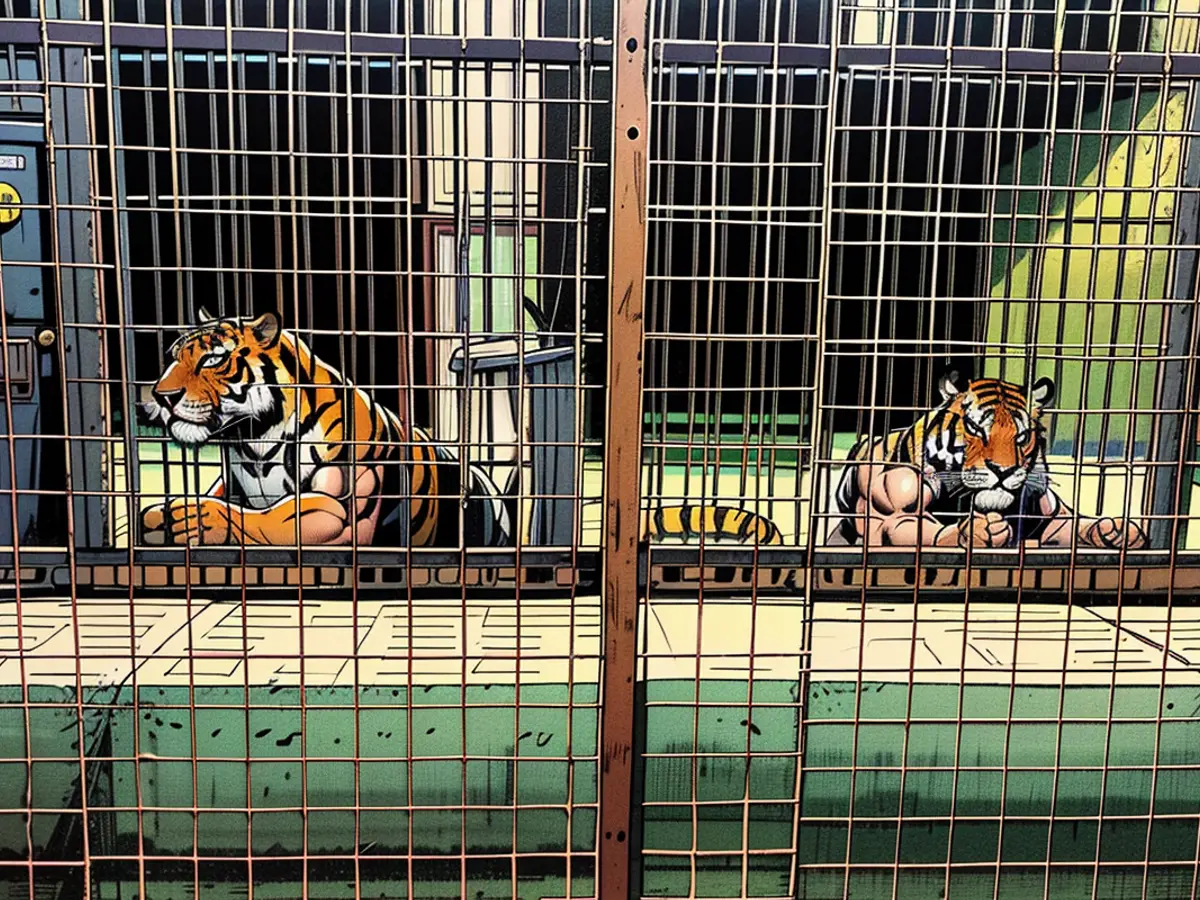Numerous tigers at a zoo in southern Vietnam succumb to avian influenza.
According to VNExpress, a caretaker at the Vuon Xoai zoo in Bien Hoa city revealed that the animals were fed raw chicken from nearby farms. The panther and around 20 tigers, including several cubs, weighed between 20 and 265 pounds (10 to 120 kg) when they perished. The remains were cremated and buried on the zoo grounds.
"The tigers died so swiftly," stated the zoo supervisor, Nguyen Ba Phuc. "They looked frail, lost their appetite, and succumbed to illness after two days."
Tests performed on the tigers indicated a positive result for H5N1, the virus responsible for bird flu.
First identified in 1959, this virus ultimately developed into a widespread and highly damaging menace to migratory birds and domestic fowl. In recent years, H5N1 has been detected in various animals, ranging from cats and dogs to sea lions and polar bears.
In cats, it was discovered that the virus attacked the brain, damaged blood vessels, and led to seizures and death.
Over twenty additional tigers were isolated for monitoring. The zoo is home to approximately 3,000 other animals, including lions, bears, rhinos, hippos, and giraffes.
The health conditions of the thirty employees caring for the tigers were reported to be normal, and they tested negative for bird flu, according to VNExpress. Another outbreak occurred at a zoo in nearby Long An province, where 27 tigers and 3 lions died within a week in September, the newspaper reported.
Rare flu strains originating from animals have occasionally been discovered in humans. Health officials in the United States confirmed Thursday that two dairy workers in California had been infected — marking the 16th overall case detected in the country in 2024.
"The tragic deaths of 47 tigers, three lions, and a panther at My Quynh Safari and Vuon Xoai Zoo amid Vietnam’s bird flu outbreak highlight the risks of maintaining wild animals in captivity," stated PETA Senior Vice President Jason Baker in a statement sent to The Associated Press.
"The exploitation of wild animals also poses a threat to global human health by increasing the likelihood of another pandemic," Baker added.
Bird flu has resulted in hundreds of deaths worldwide, with the majority of fatalities occurring due to direct contact between humans and infected birds.
The virus responsible for the tigers' deaths, H5N1, has been detected in various animals across the world, including Asia. This highlights the global spread of zoonotic diseases, potential threats to animal and human health.







